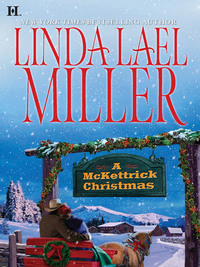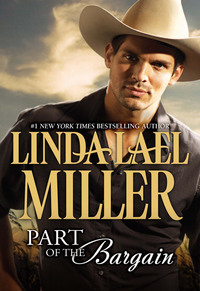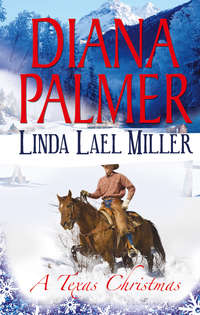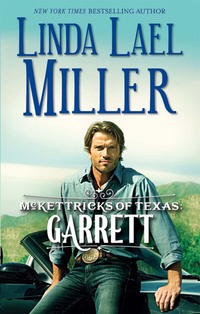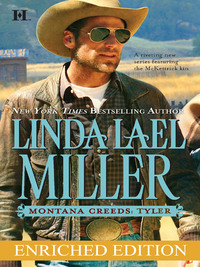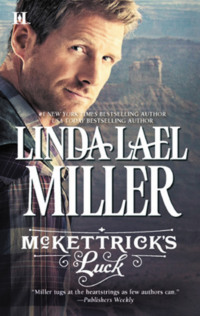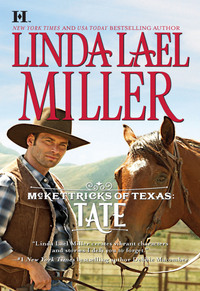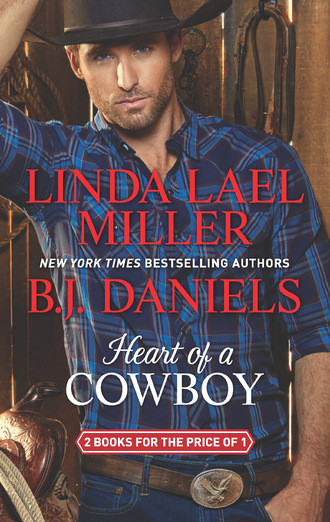
Полная версия
Heart Of A Cowboy
Tricia opened her mouth, shut it again. What did a person say to that?
Conner curved a hand around the doorknob, looked back at her over one of those fine, denim-covered shoulders of his. Mischief danced in his eyes, quirked up one corner of his mouth. “If you wouldn’t mind letting me in downstairs,” he said, “I could fill up the wood boxes. There’s room in the shed for the rest of the load, I guess.”
Tricia nodded. She had an odd sense of disorientation, as if she’d suddenly been thrust underwater and held there, and on top of that had to translate everything this man said from some language other than her own before his meaning penetrated the gray matter between her ears.
“I’ll meet you at Natty’s back door,” she said, still feeling muddled, as he went out.
She stood rooted to the spot, listening as the heels of Conner’s boots made a rapid thunking sound on the outside steps.
Winston crept out of the short hallway leading to the apartment’s one bedroom and slinked over to Tricia, purring companionably while he turned figure eights around her ankles.
Wishing she had time to pull on some clothes, fix her hair and maybe even slap on a little makeup, Tricia went back down to Natty’s place, bustled through to the kitchen, turned the key in the lock and undid the chain, and wrenched open the door.
Conner was already there, standing on the porch, grinning at her. After looking her over once more in that offhand way that so disconcerted her, he shook his head slightly and rubbed the back of his neck with one hand.
“Thanks,” he said, his tone husky with amusement. “I’ll take it from here.”
Tricia felt heat surge into her cheeks, spark in her eyes. He knew she was uncomfortable and not a little embarrassed, damn him, and he was enjoying it.
“I’ll come back in a few minutes to lock up behind you,” she replied, ratcheting her chin up a notch in hopes of letting Conner know he wasn’t getting to her.
Well, maybe he was, a little, she admitted to herself, terminally honest. But it wasn’t because of the invisible charge buzzing around them. She wasn’t used to standing around in her bathrobe talking to strange men, that was all.
“Fine with me,” Conner answered, lifting the collar of his jacket against a gust of wind as he turned to descend the steps of Natty’s back porch. His truck, large and red, with mud-splattered tires and doors, was parked alongside the woodshed.
Possessed of a peculiar and completely unreasonable urge to slam the door behind him, hard, Tricia instead shut it politely, turned on one heel and fled back upstairs to her apartment.
There, in her small bedroom, she hastily exchanged her robe and pajamas for jeans and a navy blue hooded sweatshirt, replaced the slippers with sneakers. Advancing to the bathroom—she’d had larger closets, she thought, flustered—Tricia washed her face, brushed her teeth and whipped her renegade hair into a tidy plait.
Intermittently, she heard the homey sound of wood clunking into the boxes beside Natty’s fireplace and the old stove in the kitchen.
She nearly tripped over Winston, who was lounging in the hallway, just over the bedroom threshold.
“That,” Tricia sputtered, righting herself, “is a great place to stretch out.”
“Meow,” Winston observed casually, flicking his tail and giving no indication that he planned on moving anytime soon. He was quite comfortable where he was, thank you very much.
Tricia took a moment to collect her wits—why was she rushing around as though the place were on fire, anyway?—smoothing her hands down the thighs of her jeans and drawing in a deep, slow breath.
Consuming a carton of low-fat yogurt for breakfast, she stood on tiptoe to look out the window over her kitchen sink, which afforded her a clear view of the backyard.
And she forgot all about reading her email.
* * *
AFTER HE’D FILLED Miss Natty’s wood boxes, making sure she had plenty of kindling, Conner unloaded the pitch-scented pine—a full cord—stacking it neatly in the shed. With that done, he could check the delivery off his mental to-do list and move on to the next project—stopping by the feed store for a dozen fifty-pound bags of the special mix of oats and alfalfa he gave the horses. When he finished that errand, he’d head for Doc Benchley’s office to pick up the special serum for the crop of calves born that spring. Doc had served as the town’s one and only veterinarian since way back.
Unlike a lot of people in his profession, Hugh Benchley didn’t specialize. He treated every animal from prize Hereford bulls to Yorkshire terriers small enough to fit in a teacup, and had no evident intention of retiring in the foreseeable future, even though he was well past the age when his fellow senior citizens preferred to spend their days fishing or patronizing the flashy new casino out on the reservation.
“I won’t last six months from the day I close my practice,” Doc had told Conner more than once.
Conner understood, since he thrived on work himself—the more physically demanding, the better. That way, he didn’t have time to think about things he wished were different—like his relationship, if you could call it that, with his twin brother, Brody.
Dusting his leather-gloved hands together, the last of the wood safely stowed for Miss Natty’s use, he started for the driver’s-side door of his truck. Something made him look up at the second-story window, a feeling of prickly sweetness, utterly strange to him, and he thought he saw Tricia McCall peering through the glass.
Wishful thinking, he told himself, climbing into the rig.
He’d seen Tricia lots of times, usually at a distance, but close-up once or twice, too.
How was it that he’d never noticed how appealing Natty’s great-granddaughter was, with her fresh skin and her dark, serious eyes? She had a trim little body—he’d figured that out right away, her sorry bathrobe notwithstanding—and just standing in the same room with her had put him in mind of an experience when he and Brody were kids. Nine or ten and virtually fearless, they’d dared each other to touch the band of electric fence separating the main pasture from the county road that ran past the ranch.
It had been raining until a few minutes earlier, and they were both standing in wet grass. The jolt had knocked them both on their backsides, and once they’d caught their breath, they’d lain there laughing, like the pair of fools they were.
Because any memory involving Brody tended to be painful, the good ones included, Conner avoided them when he could. Now, as he shifted the truck into gear and eased out of Miss Natty’s gravel driveway, his thoughts strayed right back to Tricia like deer to a salt lick.
He signaled a right turn at the corner, heading for Main Street, and the feed store.
As a kid, he recalled, Tricia had spent summers in Lonesome Bend with her dad. Shy, she’d kept to herself, sticking to Joe’s heels as he went happily about his business. Even then, the run-down drive-in theater, with its bent screen, had been a losing proposition, and the campground hadn’t been much better.
Like all his friends, Conner had gone swimming at River’s Bend every chance he got, but he didn’t remember ever seeing Tricia so much as dip a big toe into the water. She’d sit cross-legged and solemn on the dock, always wearing a hand-me-down swimsuit, with a towel rolled up under one arm, and watch the rest of them, though, as they splashed and showed off for each other.
At the time, it was generally agreed that Tricia McCall was a little weird—probably because her parents were divorced and lived in different states, an unusual situation in those days, in Lonesome Bend if not in the rest of the country.
Since his older cousin, Steven, split his time between the ranch and a mansion back in Boston, neither Tricia nor her situation had struck Conner as strange—she was just quiet, liked to keep to herself. He’d been mildly curious about her, but nothing more. After all, she always left town at the end of August, the way Steven did, turning up again sometime in June.
Drawing up to the feed store, Conner pulled into the parking lot and backed the truck up to one of two loading docks. He shut off the engine, got out of the rig and vaulted up onto the platform to help with the bags, stacked and waiting to be collected.
And still Tricia lingered in his mind.
As a teenager, Tricia continued to visit her dad every summer, and she went right on marching to her own private drumbeat, too. The popular girls had declared her a snob, a snooty city girl who thought she was too good for a bunch of country kids. But she was wearing some guy’s class ring on a chain around her neck, Conner recollected, and he’d steered clear because he figured she was going steady.
And because he’d been bone-headed crazy about Joleen Williams, the platinum blonde wild child with the body that wouldn’t quit.
Somebody elbowed Conner, and that brought him back to the here and now, pronto. Malcolm, Joleen’s half brother and a classmate of Conner’s since kindergarten, grinned as he pushed past with a bag of horse feed under each arm. “Clear the way, Creed,” Malcolm teased, his round face red and sweaty with effort and a penchant for triple cheeseburgers and more beer than even Brody could put away. “People are trying to work here.”
Conner grinned and slapped his friend on the back in greeting. The day was cool and crisp, but the sun was climbing higher into a sky blue enough to make a man’s heart catch, and the aspen trees, lining the streets of Lonesome Bend and crowding the foothills all around it, were changing color. Splashes of bright crimson and gold, pale yellow and rust, and a million shades in between, blazed like fire everywhere he looked.
“How’ve you been, Malcolm?” he asked, because in small towns people always asked each other how they were, even if they’d seen each other an hour before at the post office or the courthouse or the grocery store. Moreover, they cared about the answer.
“I was fine until you showed up,” Malcolm answered, tossing the feed bags into the bed of the pickup and turning to go back for more. “What kind of fancy horses are you keeping out on that ranch these days, anyhow? Thoroughbreds, maybe? This stuff costs double what the generic brand runs, and I swear it’s heavier, too.”
Conner laughed and hoisted a bag. “Maybe you ought to sit down and rest,” he joked. “It would suck if you had a heart attack right here on the loading dock.”
“It would suck if I had a heart attack anyplace,” Malcolm countered, continuing to load the truck. “Hell, I’m only thirty-three.”
Conner, sobered by the picture the conversation had brought to mind, didn’t answer.
“You heard about Joleen?” Malcolm asked, when they’d finished piling the bags in the back of the truck.
Conner jumped down to level ground and put up the tailgate on his rig with more of a bang than the task probably called for. He’d been over Malcolm’s sister for years, but any mention of her always stuck in his craw. “What about her?” he asked, looking up at Malcolm, who stood rimmed in dazzling sunlight on the loading dock like some overweight archangel.
“She’s coming back to Lonesome Bend,” Malcolm answered. His tone was strange. Almost cautious.
“No offense, Malcolm,” Conner replied, “but I couldn’t care less.”
Malcolm was quiet for a moment. Then, in a rush of words, he added, “You want this feed put on your bill, as usual?”
“That’ll be fine,” Conner said, opening the door of his truck and setting one booted foot on the running board, about to climb behind the wheel. “Thanks, Malcolm.”
“Conner?”
Halfway into the rig, Conner ducked out again. Malcolm had shifted his position, and his features were clearly visible now. He wasn’t smiling.
“What?” Conner asked.
Malcolm sighed heavily, swept off his billed cap and dried the back of his neck on one shirtsleeve. “She’s with Brody,” he said, as though it pained him. “I guess they’ve been—seeing each other.”
Everything inside Conner went still. It was as if the whole universe had ground to a halt all around him.
Finally, he found his voice. “I guess that’s their business,” he said, flatly dismissive, “not mine.”
CHAPTER TWO
THE WIND RUFFLED the surface of the river, placid enough where it nestled in the tree-sheltered bend, the stony beach curving easy around it, like a cowboy’s arm around his girl’s shoulders, but wilder out in the middle. There, the currents were swift and, a mile downriver, there were rapids, leading straight to the falls.
Every so often, some hapless soul would be swept away in a canoe or even an inner tube, and find himself rushing at top speed toward a seventy-five-foot drop over the waterfall and onto the jagged boulders below.
It was a miracle nobody had been killed, Tricia thought, pulling her jacket more tightly around her and surveying the rocky shore in front of her. The area was littered with crushed beer cans, cigarette butts and fast food wrappers—kids had been partying there again.
Sighing, Tricia pulled a pair of plastic gloves from her pocket and snapped them on, then unfolded the large trash bag she’d tucked into the waistband of her jeans. There were No Trespassing signs posted, of course, but they seemed to have no more effect that the ones that read For Sale.
She picked up all the aluminum cans first—those were destined for the recycling bin—then collected the rest of the trash, using a smaller bag.
Tricia liked being outside, chilly as it was, under that blue, blue sky, breathing in the singular scents of autumn, though cleaning up after thoughtless people wasn’t her favorite chore. It would be a nice day for a bonfire, she reflected, bending to retrieve a potato chip bag that looked as though it had been chewed up right along with its contents.
It was then that she made eye contact with the dog.
Nestled beneath the very same picnic table where she and Joe had found Rusty all those years ago was a painfully thin mutt with burrs and twigs caught in its coat and sorrow in its liquid brown eyes.
“Hey,” Tricia said, dropping to her knees.
The dog whimpered, tried to scoot out of her reach when she moved to touch him.
“It’s okay,” she murmured. She tried to harden her heart a little, but it remained tender. “I won’t hurt you, buddy.”
Resting on her haunches, her hands on her thighs, Tricia studied the animal carefully. He was probably yellow under all that dirt, she concluded, though there would be no way to know for sure until he’d been cleaned up a little. Since he wasn’t wearing a collar, let alone ID tags, Tricia never seriously entertained the idea that some anxious pet owner was out there somewhere, searching frantically for the family dog.
She extended one hand cautiously, still wearing the plastic gloves, though they wouldn’t protect her from a bite. The poor creature snarled feebly in warning.
Tricia drew back. “No worries,” she said gently. “Wait here, and I’ll bring you something to eat.”
She got to her feet and headed for the log building that housed the office and a couple of vending machines, tossing the trash bags into a Dumpster as she passed it, the gloves following quickly behind.
Inside the tiny space, measuring no more than twelve by twelve in its entirety, a fire burned in the Franklin stove, exuding pleasant warmth, and the varnish on the front of the big rustic reception counter bisecting the room reflected the dancing flames.
For just a moment, Tricia paused, feeling a pang of regret at the prospect of moving away. This place had seen a lot of happy times in days gone by—families eager to camp out in a tent, cook their meals under the sky, swim in the calm inlet of the river. As eager as she was to sell everything and return to Seattle for good, letting go would be hard.
Shaking off the spell, she rounded the counter, took her purse from one of the shelves underneath it and scrabbled around in the bottom of the bag for the change she continually tossed in. Maybe she’d get one of those little plastic coin holders, the kind that gaped open like a grin when you squeezed either end. For now, though, the slapdash method had to do.
When she had a palm full of quarters, dimes and nickels, Tricia approached the vending machine. Chester, the man who ran the route, dropping sandwiches and candy bars and snack-size bags of chips into the slots, hadn’t been around recently. It was the end of the season, and the pickings were slim.
She finally decided on a ham sandwich, sealed inside a carton with a see-through top—the edges of the bread were curling up—dropped the appropriate number of quarters into the slot and pushed the button. The sandwich clunked into the tray.
Tricia studied it with distaste, then sighed and marched herself toward the door. Outside, she peeled back the top of the container, and walked back to the picnic table.
A part of her had been hoping the dog would be gone when she got back, she realized as she knelt again, but of course he was right there where she’d left him. He raised his head off his outstretched forelegs and sniffed tentatively at the air.
Tricia smiled, broke half the sandwich in two and held out a portion to the dog.
He hesitated, as though expecting some cruel trick—the world clearly hadn’t been kind to him—then decided to chance it. He literally wolfed down the food, and Tricia gave him more, and then more, in small, carefully presented chunks, until there was nothing left.
“Come out of there,” Tricia coaxed, fallen leaves wetting the knees of her jeans through and through, “and I’ll buy you another sandwich.”
The dog appeared to consider his—or her—options.
Tricia stood up again, backed off a few feet and called for a second time.
A frigid wind blew in off the river and seeped into her bones like a death chill. She longed for hot coffee and the radiant coziness of the fire in the Franklin stove, but she wasn’t going to leave the dog out here alone.
It took a lot of patience and a lot of persuasion, but the poor little critter finally low-crawled out from under the picnic table and stood up.
Definitely a male, Tricia thought. Probably not neutered.
“This way,” she said, very softly, turning and leading the way toward the structure her dad had euphemistically referred to as “the lodge.” The dog limped along behind her, head down, hip bones and ribs poking out as he moved.
Tricia’s heart turned over. Was he a lost pet or had someone turned him out? Dropped him off along the highway, thinking he’d be able to fend for himself? That happened way too often.
The dog crossed the threshold cautiously, but the heat of the stove attracted him right away. He teetered over on his spindly legs and collapsed in front of it with a deep sigh, as though he’d come to the end of a long and very difficult journey.
Tears stung Tricia’s eyes. There was no animal shelter in Lonesome Bend, though Hugh Benchley, the veterinarian, kept stray dogs and cats whenever he had room in the kennels behind his clinic. His three daughters, who all worked for him, made every effort to find homes for the creatures, and often succeeded.
But not always.
Those who didn’t find homes ended up living on the Benchleys’ small farm or, when they ran out of room, in one of the shelters in nearby Denver.
This little guy might be one of the lucky ones, Tricia consoled herself, and wind up as part of a loving household. In the meantime, she’d give him another vending machine sandwich and some water. Most likely, he’d been drinking out of the river for a while.
While the dog ate the second course, Tricia called Dr. Benchley’s office to say she was bringing in a stray later, for shots and a checkup. It went without saying that a permanent home would be nice, too.
Becky, Doc’s eldest daughter, who kept the books for her father’s practice and did the billing at the end of the month, picked up. Fortyish, plump and happily married to the dairy farmer on the land adjoining the Benchleys’, Becky had a heart the size of Colorado itself, but she sighed after Tricia finished telling her what little she knew about the dog’s condition.
“It never stops,” Becky said sadly. “We’re bulging at the seams around here as it is, and at Dad’s place, too, and Frank says if I bring home one more stray, he’s going to leave me.”
Frank Garson adored his wife, and was unlikely to leave her for any reason, and everybody knew it, but Becky had made her point. Bottom line: there was no room at the inn.
“Maybe I could keep him for a little while,” Tricia said hesitantly. Then she blushed. “The dog, I mean. Not Frank.”
Becky laughed, sounding more like her old self, but still tired. Maybe even a little depressed. “That would be good.”
“But not forever,” Tricia added quickly.
“Still not over losing Rusty?” Becky asked, very gently. As a veterinarian’s daughter, she was used to the particular grief that comes with losing a cherished pet. “How long’s it been, Tricia?”
Tricia swallowed, watching as the stray got to his feet and stuck his muzzle into the coffee can full of water, lapping noisily. “Six months,” she said, in a small voice.
“Maybe it’s time—”
Tricia squeezed her eyes shut, but a tear spilled down her right cheek anyway. “Don’t, Becky. Please. I’m not ready to choose another dog.”
“We don’t choose animals,” Becky said kindly. “They choose us.”
She couldn’t possibly be expected to understand, of course. As soon as a real-estate miracle happened—and Tricia had to believe one would or she’d go crazy—she’d be moving away from Lonesome Bend, probably living in some condo in downtown Seattle, where only very small dogs were allowed.
She swallowed again. Dashed at her cheek with the back of her free hand. The canine visitor knocked over the coffee can, spilling what remained of his water all over the bare wooden floor. “Be that as it may—”
“How’s eleven-thirty?” Becky broke in, brightening. “For the appointment, I mean?”
Tricia guessed that would be fine, and said so.
She hung up and hurried into the storage room for a mop, and the dog cowered as she approached.
Tricia’s heart, already pulverized by Rusty’s passing, did a pinchy, skittery thing. “Nobody’s mad at you, buddy,” she said softly. “It’s all okay.”
She swabbed up the spilled water and made a mental note to stop off at the discount store for kibble and bowls and maybe a pet bed, preferably on sale, since the trip to the vet was bound to cost a lot of money. The dog—he needed a name, but since giving him one implied a commitment she wasn’t willing to make, the dog would have to do—could live right here at the office until other arrangements could be made.
Taking him home, like naming him, would only make things harder later on. Besides, Winston would probably take a dim view of such a move, and then there was the matter of seeing another dog in all the places where Rusty used to be.
She did wish she hadn’t been in such a hurry to give Rusty’s gear away, though. She could have used that stuff right about now.
The dog looked up at her with an expression so hopeful that the sight of him wrenched at something deep inside Tricia. Then he meandered, moving more steadily now that he’d eaten, over to the vending machine. Pressed his wet nose to the glass.
Tricia chuckled in spite of herself. “Sorry,” she said. “No more stale sandwiches for you.”
He really seemed to understand what she was saying, which was crazy. The similarities between finding Rusty and finding—well, the dog—were getting to her, that was all, and it was her own fault; she was letting it happen.
She brought him more water, and this time, he didn’t tip the coffee can over.
Gradually, they became friends, a three steps forward, two steps back kind of thing, and while Tricia doubted he’d tolerate being scrubbed down under one of the public showers, he did let her remove the twigs and thistles from his coat.



